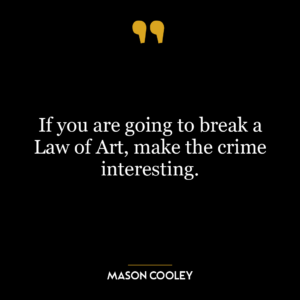This quote suggests that certain fundamental principles and norms, even though they aren’t explicitly codified into written law, have a stronger hold on society than any legal statute. These unwritten laws might include ethical norms, social customs, or deeply ingrained cultural practices. They are “more firmly established” because they are often so deeply embedded in a society’s collective consciousness that they are adhered to instinctively, without the need for formal enforcement.
The unwritten laws might also refer to the internal moral compass that guides individual behavior. These intrinsic values and principles often have a much stronger influence on our actions than external rules or regulations. This is because they are part of our personal identity and belief system, making them more compelling and harder to violate than laws that are imposed from the outside.
Applying this idea to today’s world, we could consider the unwritten laws of social etiquette, such as respecting personal space or not interrupting someone while they’re speaking. Even though these rules aren’t legally enforced, violating them can lead to social ostracism, which is a powerful deterrent.
In terms of personal development, the quote underscores the importance of cultivating a strong internal value system. It suggests that by developing and adhering to our own unwritten laws – such as a commitment to honesty, kindness, or personal growth – we can lead a more principled and fulfilling life. These internal laws can guide our behavior more effectively than any external rules or expectations, helping us to make decisions that align with our deepest values and aspirations.













